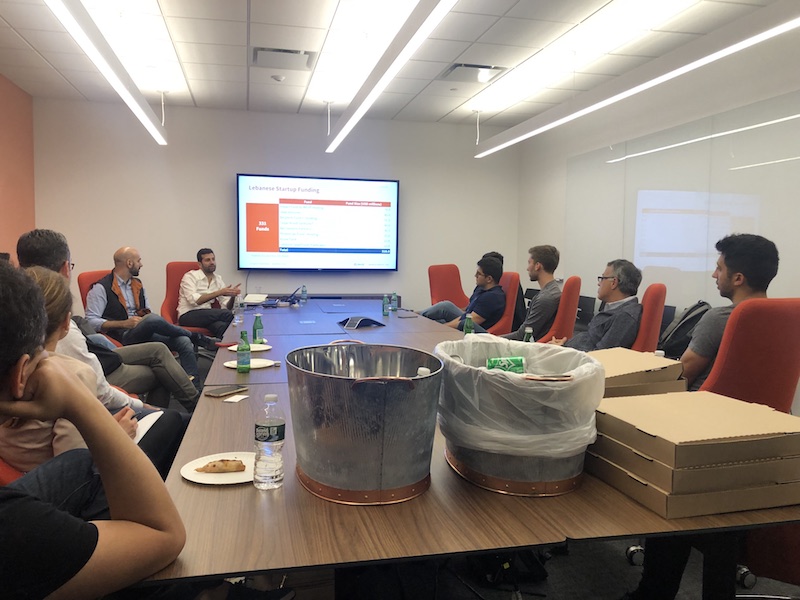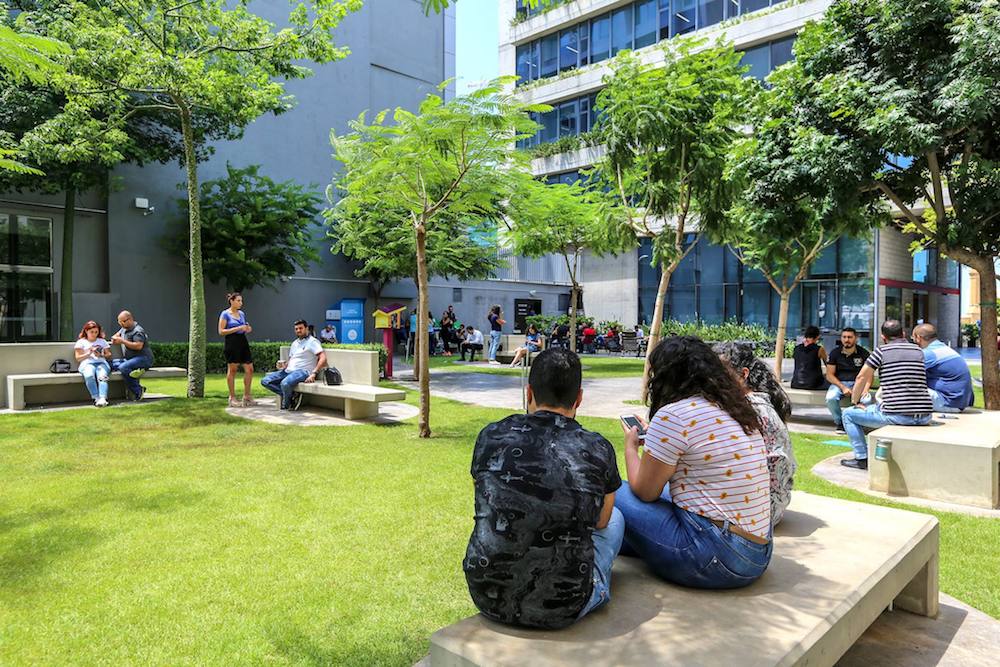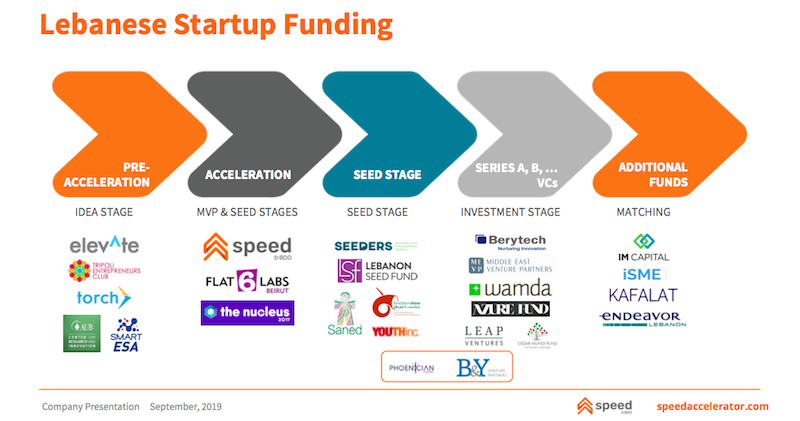How are startups doing in Lebanon?
How do they receive support?
What’s the ecosystem like?
How can the diaspora give back?
Where are the success stories?
It’s hard for those living outside of Lebanon to know what’s happening in the startup tech scene in the country.
To provide an overview of the Lebanese ecosystem, LebNet, in collaboration with Lebanon-based accelerator Speed, kicked off a series of events in Boston (October 1st), Toronto (October 2nd), Montreal (October 3rd) and Austin (October 7th).
The events featured Speed’s CEO Sami Abou Saab, LebNet’s community leads and members. Abou Saab gave an overview of Lebanon’s startup scene and how Speed is supporting local entrepreneurs and focused the discussions on how LebNet members can give back to Lebanon.

LebNet board member Habib Haddad and Sami Abou discussing with attendees opportunities to give back to Lebanon during LebNet’s Boston event.
“People want a bridge back to Lebanon and want to be involved. We asked them why are you attending and what do you want to achieve,” Abou Saab said. “What we discussed was totally new for many people. It was positive and refreshing to them and we shed light on what was happening.”
The audience was a mix of startup founders, investors, future entrepreneurs, tech enthusiasts, lawyers and professionals.
Lebanon’s startup scene in numbers
Talks given by Abou Saab on the status of entrepreneurship in Lebanon were new and refreshing to many as the current situation in Lebanon does not convey such positive news. The nascent ecosystem is making humble yet steady improvements that are bringing a new wave of innovators and entrepreneurs.
He explained how the ecosystem is growing and rising on the side of the economy, given it’s forward-looking in its nature and approach. At the same time, it is in such economic conditions that access to talent becomes better and easier allowing startups to build strong teams who can solve major challenges.
“People asked about the kind of startups we get and what they’re doing. They want to be engaged and be part of the ecosystem and many of them want to help,” said Abou Saab.
To recap some of the things discussed during the four events, we listed below some interesting data points on the Lebanese startup scene:
- In 2019, the investor community grew by 4%, the number of closed deals grew by 23%, and 1 in 6 women were starting or running a business in 2018. Source.
- Lebanon displayed a high number of funds driven by Circular 331 of the Central Bank of Lebanon – where it hosts 13% of the total number of investors in the Middle East and North Africa (MENA). In 2016, 37 investment deals were closed with a total value of $56 million. Source.
- Lebanon has an early-stage ecosystem. Around 57% of the surveyed entrepreneurs in this report raised between one to two rounds of funding. Only 9% raised three rounds of funding or more; 34% did not receive any funding; 65% raised seed amounts, and the majority of amounts raised range between less than $50,000 (29%) and $50,000 to $0.5 million (36%).
- There are around 13 startup funds in Lebanon, with a total fund size of $459 million, 11 incubators/accelerators and 15 support organizations. Source: Speed
Ever since the introduction of Circular 331 in 2013, the Lebanese digital startup scene has seen a surge in capital, startups and support. Challenges like regulatory frameworks, lack of e-government services, business registration remain but the ecosystem is still betting on its rich local talent to thrive.
Lebanese founders abroad can take advantage of that talent and use the Lebanese market as a kitchen for their operations. Audela, which was a partner and a host for the Montreal event, has 170 employees in Lebanon.
The need for Speed
One of the support initiatives that are helping early-stage entrepreneurs take off is Speed. The accelerator is exceptionally sending 4 of its startups to Silicon Valley to participate in LebNet Ignite 7, a 5-week acceleration program in collaboration with Draper University.
Based in the Beirut Digital District, Speed offers a 3-month acceleration program for two batches of startups each year. It offers $30,000 of funding, $30,000 of in-kind services, coaching and gives its startups access to a global network. In return, it takes 5 percent of equity. So far, it has accelerated 42 startups, created over 600 jobs, attracted 12 founders from the Lebanese diaspora and helped their startups raise a total of $4.8 million of funding.
Speed is always on the lookout for mentors and startups. Those interested in mentoring can apply here and those who want to join the accelerator’s next cycle can apply here. Stay tuned as we will be following up with more details on how LebNet members can be involved in helping entrepreneurs in their home country.
Main image from Beirut Digital District


